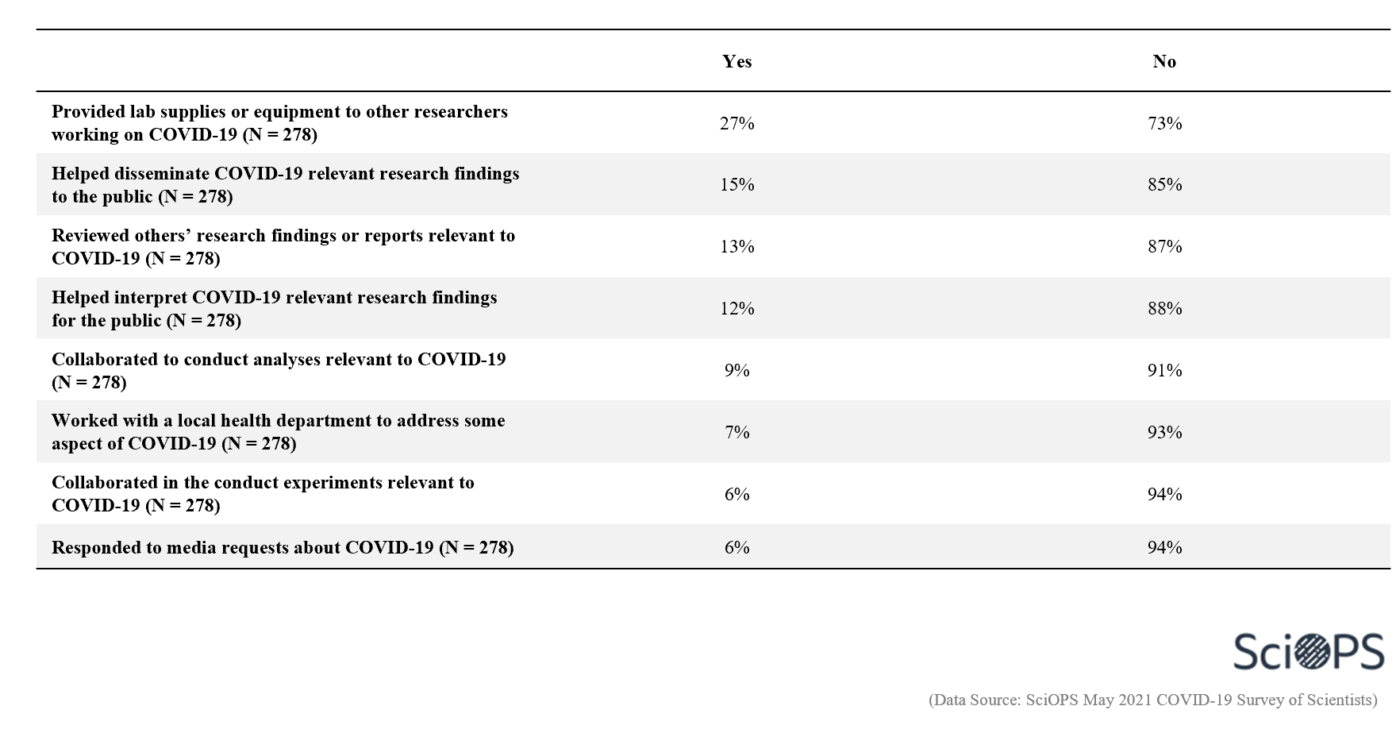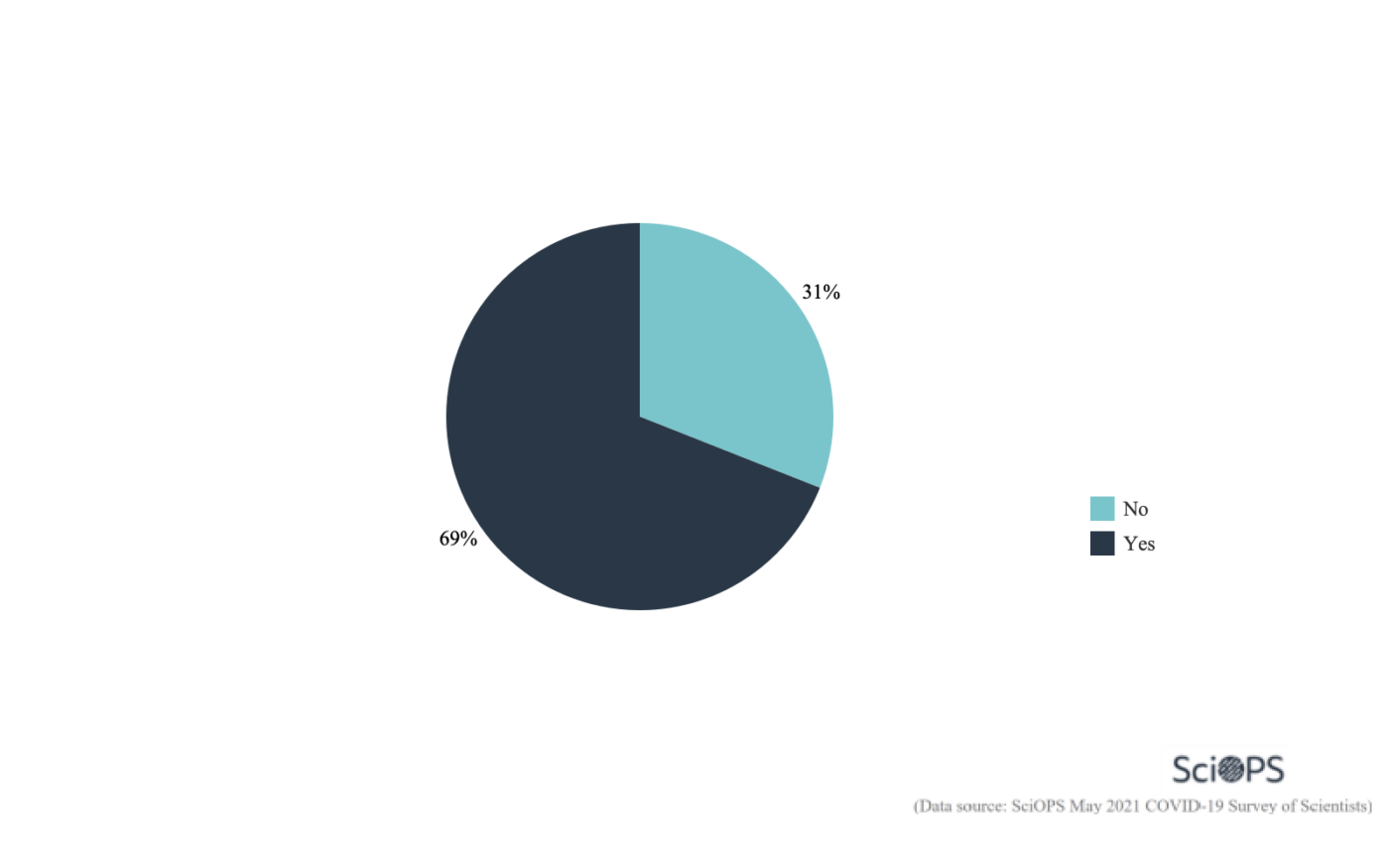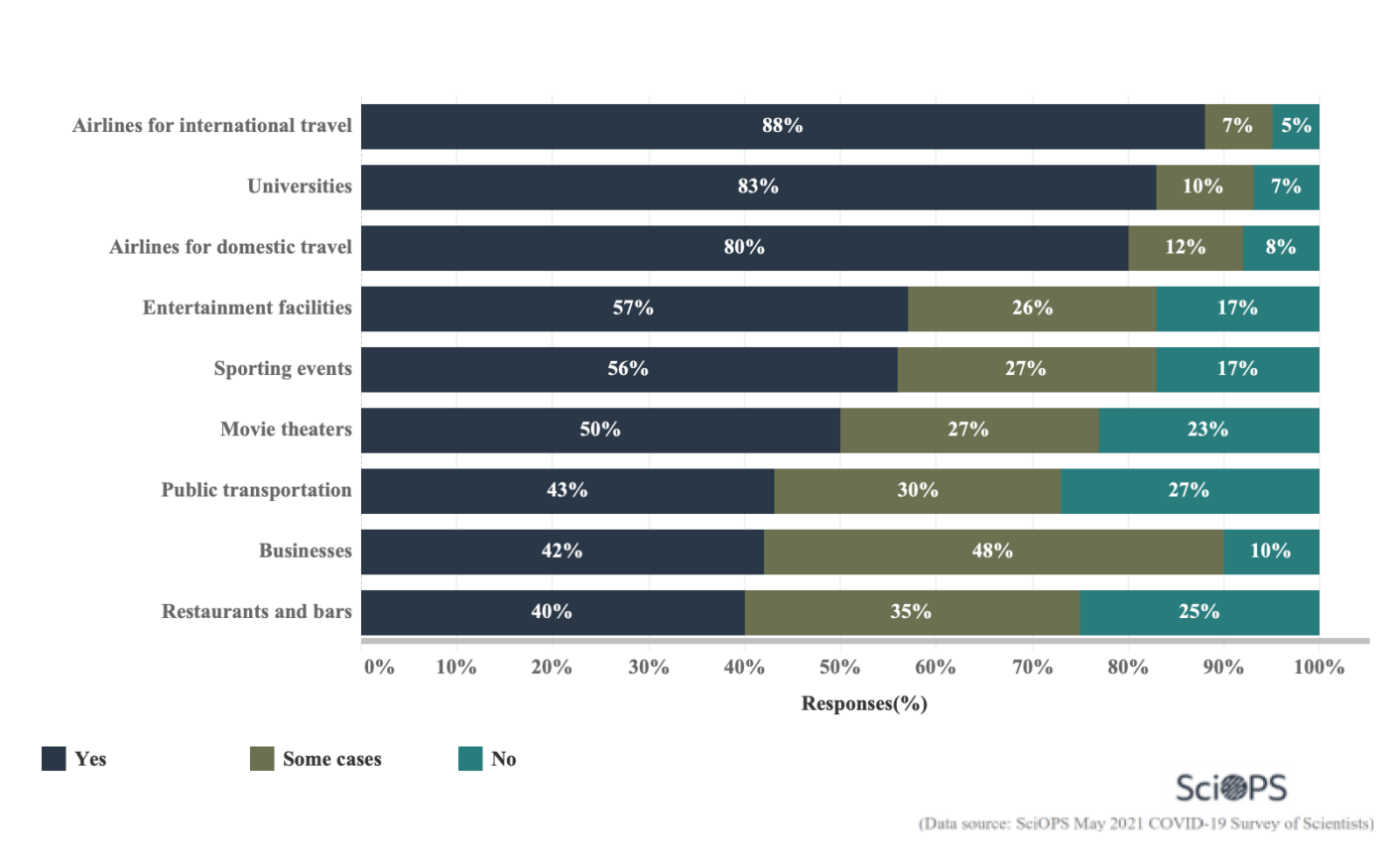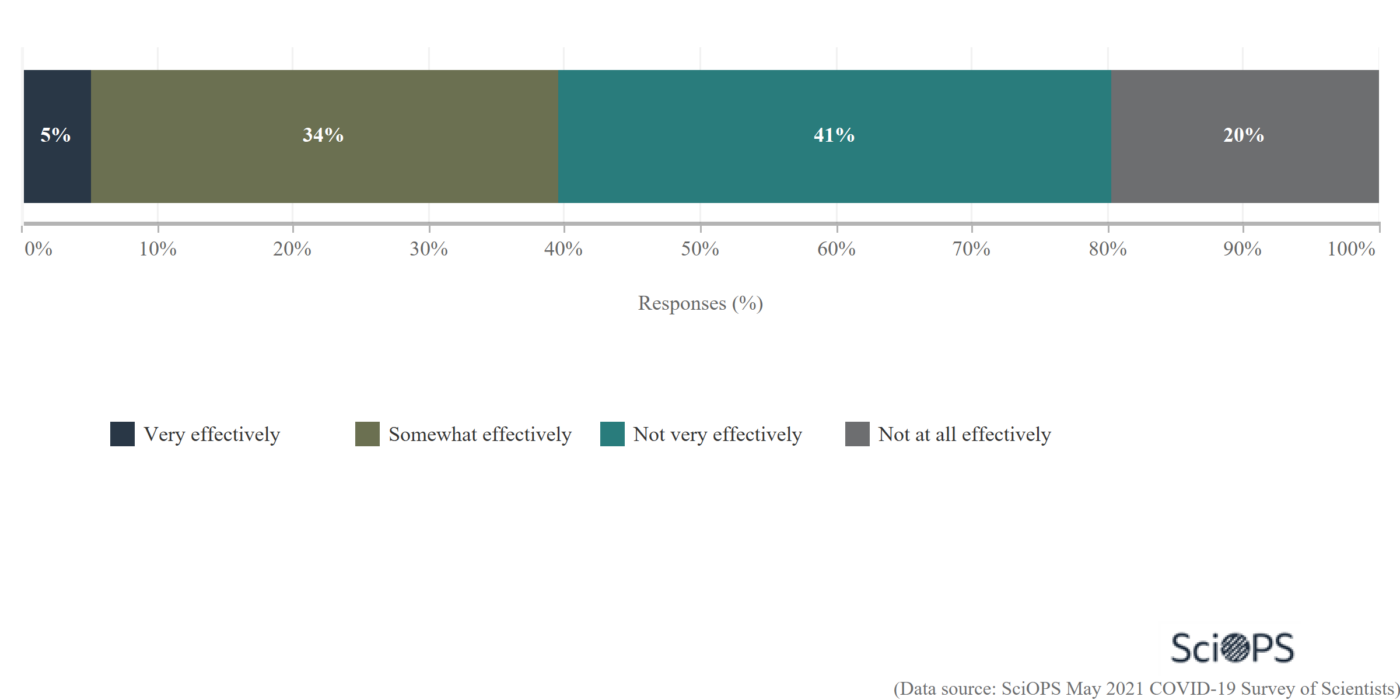COVID-19 Survey II (2021): Policy, Risks & Preparedness
The survey sample was weighted by gender and academic field to represent the population as closely as possible. The measure of sampling error for questions answered by the full sample is plus or minus 5 percentage points.
In this second round survey on COVID-19, we asked scientists about the ways in which their professional and personal lives have been impacted over the past year. We also asked their opinions on policy issues related to the pandemic. You can see results from last year’s survey here.
Question

Finding
The most commonly reported way in which scientists helped to address the pandemic is through the provision of lab supplies or equipment to other researchers (27%). 15% of the respondents helped disseminate COVID-19 research findings to the public, while less than a tenth (6%) reported responding to media requests about the pandemic, or collaborating on experiments relevant to COVID-19.
Question

Finding
Almost 70% of scientists agree that pharmaceutical companies should make their COVID-19 vaccine technology patents publicly available.
Question

Finding
While there is variation by type of organization, in general, scientists indicate that organizations should require proof of vaccination in some cases.
The majority of scientists responded that airlines should require proof of vaccination for both international (88%) and domestic (80%) flights and 84% responded that universities should require proof of vaccination.
Half or more of scientists responded that entertainment facilities (57%), sporting events (56%), and movie theaters (50%) should require proof all of the time.
Less than half responded that proof of vaccination should be required for public transportation (43%), businesses (42%), restaurants and bars (40%).
Question

Finding
39% of scientists said that the US government is managing the COVID-19 pandemic very effectively (5%) or somewhat effectively (34%).
Survey Description
This national survey of scientists and engineers was conducted by Center for Science, Technology and Environmental Policy Studies at Arizona State University. The population for the survey represents a random sample of PhD-level faculty in four fields of science. Three fields, biology, biochemistry, and civil and environmental engineering, were collected from 61 randomly selected Carnegie-designated Research Extensive and Intensive (R1) universities in the United States (US). The final sample included contact information for 1,914 scientists. A total of 291 usable responses were obtained, representing an AAPOR response rate (RR4) of 15.7%.
Sample Weighting and Precision: the completed sample was weighted by the inverse of selection probabilities and post-stratified by gender and academic field to represent the population as closely as possible. A conservative measure of sampling error for questions answered by the full sample is plus or minus 5 percentage points. The survey was approved by Institutional Review Boards at Arizona State University and at the University of Illinois at Chicago.
